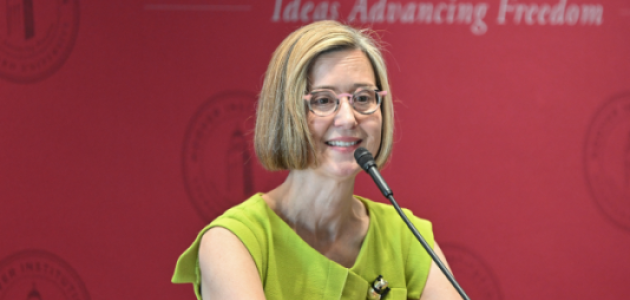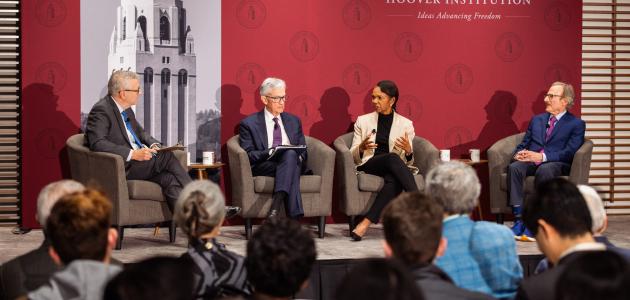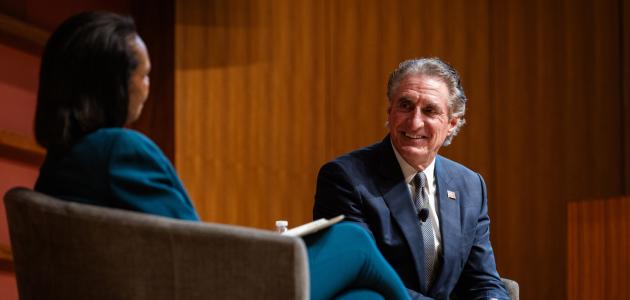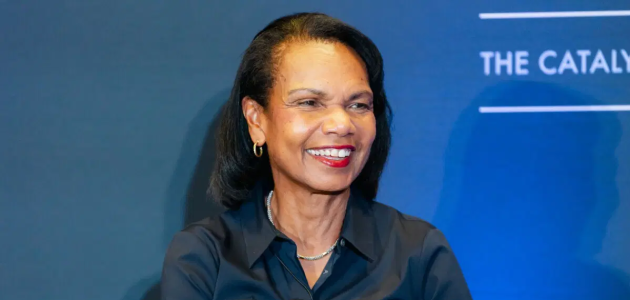US member of Congress Paul Ryan, representing Wisconsin’s 1st Congressional District, visited the Hoover Institution on Tuesday, September 27, 2011, to highlight the need to repeal and replace President Obama’s health care law. “We know that the first step toward real, bipartisan advances in health policy must start with a full repeal of the president’s partisan law,” Ryan said during remarks to Hoover Institution supporters. “But the case for repeal must be matched with even greater intensity by a case for replacing the law with structural reforms and real solutions to the problems Americans are facing in health care.” Ryan underscored the need to engage the nation in a serious debate on health care and put forward a principled reform agenda that confronts health care inflation. He emphasized the need to transition from “the open-ended, defined-benefit approach of the past, to market-oriented, defined-contribution reforms that promote choice and competition.” For more information see “The Optimist’s Guide to Repeal and Replace.” After delivering his remarks and participating in a question-and-answer session with the audience, Ryan participated in a roundtable discussion with Hoover Institution scholars to discuss topics including health care policy, entitlement reform, the debt crisis, jobs, and economic growth.
Ryan is currently serving his seventh term as a member of Congress; he also serves as chairman of the House Budget Committee and as a senior member of the House Ways and Means Committee, which deals with tax policy, Social Security, health care, and trade laws. Ryan has proposed the Roadmap Plan, which he addresses health care security, retirement security, federal tax reform, job training, and budget process reform.
Congressman Ryan visited the Hoover Institution as a featured guest of its Leadership Forum, which seeks to engage influential voices and rising political leaders with the Institution, its scholars, and its supporters. As part of this forum, the Hoover Institution has welcomed guests including Governor Haley Barbour, Louisiana; House Speaker John Boehner; House majority leader Eric Cantor; Governor Jon Huntsman, Utah; Senator John Kerry; Governor Tim Pawlenty, Minnesota; Congressman Mike Rogers; and, Governor Mitt Romney, Massachusetts.






















